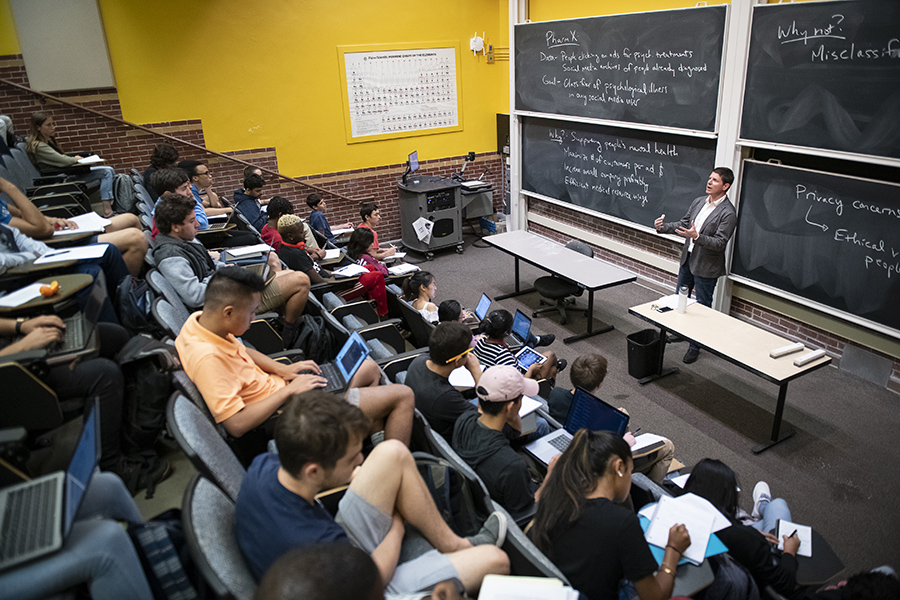
New Minor Aims to Shift Thinking About Advancing Technologies
A new minor available to all Carnegie Mellon University undergraduates aims to shift the way students study advancing technologies such as artificial intelligence and robotics.
The new minor, Societal & Human Impacts of Future Technologies (SHIFT), launched this fall. The minor is managed and advised out of the Department of Philosophy in the Dietrich College of Humanities and Social Sciences, but includes courses from across the university. Each CMU school and college will be represented on the minor’s seven-person steering committee.
“Our students are graduating into a world filled with technological tools, computational intelligence, human-AI teams and large-scale data-driven decision making,” said Philosophy Department Head David Danks, who began the process of developing the SHIFT minor in consultation with colleagues from around the university two years ago. “Success in this complex world requires that our students understand the capabilities and limitations, human and societal impacts, and unintended consequences of these emerging technologies.”
It will be increasingly important for students to have the skills and experiences to successfully take on roles in integrated, multidisciplinary analyses of current and near-future computational technologies. The SHIFT minor, designed for students in both technical and non-technical majors, will ensure that students can collaborate to understand analyses from relevant disciplinary perspectives outside of their own expertise.
The SHIFT minor was developed in response to student demand for an interdisciplinary approach to future technologies that are rapidly reshaping our world, humanity, cultures and economies. Danks began teaching AI, Society and Humanity – one of the minor’s two core courses – in fall 2018. This semester, more than 90 students enrolled in the course.
In addition to AI, Society and Humanity, SHIFT minors must complete a capstone project experience along with courses from three areas: technology; social and behavioral sciences; and ethics, policy and design.
Students who are interested in pursuing the minor or learning more about it should contact Patrick Doyle in the Department of Philosophy.